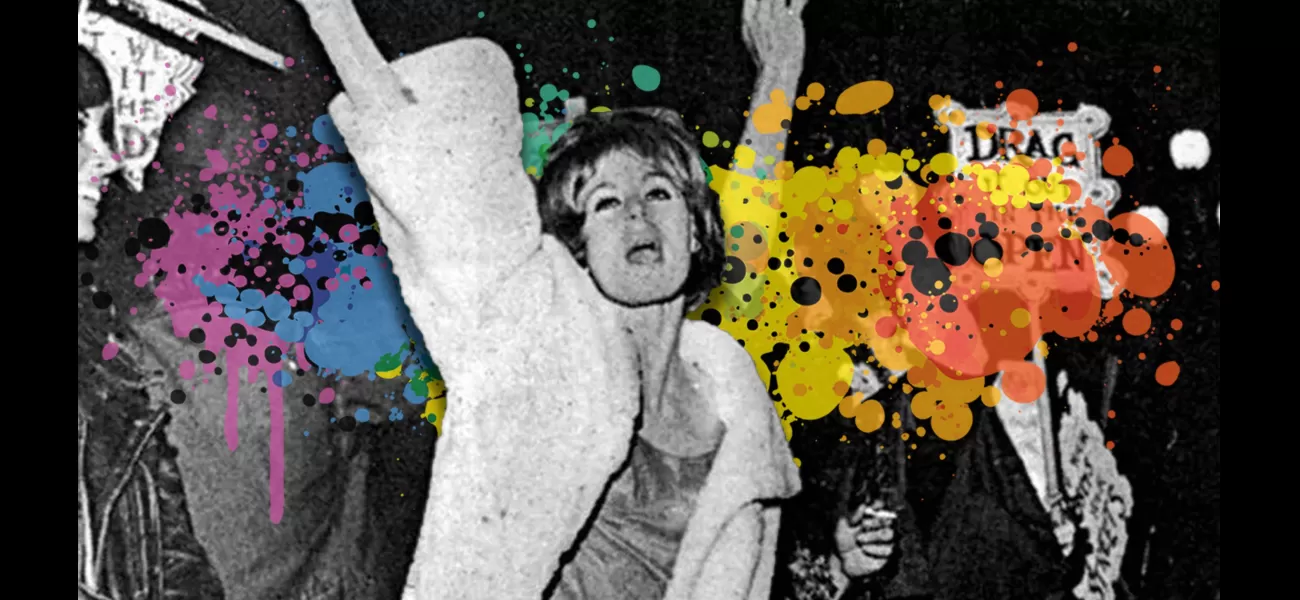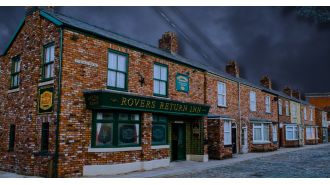Four important, lesser-known examples of LGBT+ activism that must not be overlooked.
Freud believed that it is unfair and cruel to treat homosexuality as a crime.
June 30th 2024.

Our LGBTQ+ Masters course at Edinburgh University was a truly enlightening experience. As we delved into the history of the LGBTQ+ community, we were met with many stories of struggle and discrimination. It's no secret that LGBTQ+ individuals have faced hardships for centuries, and unfortunately, in some countries, this is still a reality.
However, amidst the darkness, there were also stories that stood out - small glimmers of hope in an otherwise grim history. These stories of resistance and resilience were the focus of our course, "LGBT Rights: A Legal Perspective", which is believed to be the first of its kind in Scotland.
As my colleague Sean Becker and I taught the course, we were amazed by the level of fascination and engagement from our students. Topics such as discrimination, criminalization and decriminalization of homosexuality, same-sex marriage, transgender rights, and laws against conversion "therapy" sparked thought-provoking discussions and challenged our own views.
One of the most rewarding parts of the course was when we came across lesser-known acts of resistance against homophobia and transphobia. These events not only challenged the students' perspectives but also opened our own eyes to the resilience and strength of the LGBTQ+ community.
One of my personal favorites is the diary entry of Matthew Tomlinson, a Yorkshire farmer who lived in 1810. In his entry, Tomlinson expresses his understanding that homosexuality is part of one's nature and that it is cruel to punish it with death. This diary was only recently unearthed by Eamonn O'Keeffe, an Oxford PhD student, and it left a lasting impression on many of my students.
It is remarkable to think that over 200 years ago, there were individuals who were willing to speak out against unjust laws and stand up for the rights of LGBTQ+ individuals. This story, in particular, resonated with many of my students and served as a reminder that society often blindly accepts laws without questioning their morality.
Another powerful story that left a lasting impression on me is a letter written by Sigmund Freud in 1935. In it, he states that homosexuality is not a vice or a degradation, and it cannot be classified as an illness. He also speaks out against the persecution of LGBTQ+ individuals and lists many highly respected individuals throughout history who were gay. This letter was groundbreaking for its time and still holds relevance today.
It is unfortunate that even in modern times, conversion "therapy" is still practiced in some countries. However, Freud's letter and the growing number of medical associations that reject the idea of homosexuality and being transgender as illnesses give hope that society is moving towards a more rational and humane understanding of sexuality.
The year before the groundbreaking Stonewall riots in 1969, there was another act of resistance that often goes unnoticed - the Compton Cafeteria Riot in San Francisco. Transgender individuals, who were often targeted and harassed, had finally had enough. The events of that night in 1966 were a turning point in the fight for LGBTQ+ rights, and without the involvement of transgender individuals, the Stonewall riots may have never happened.
While there is still a long way to go, it is heartening to know that there have been small victories along the way. One such victory occurred in 2016 in Botswana, a country where homosexuality is criminalized. When a US preacher advocated for the stoning of homosexuals, the Botswana President ordered his arrest, stating that there is no place for hate speech in their country. Three years later, the High Court of Botswana declared the criminalization of same-sex activities as unconstitutional.
As Judge Lebruru wrote in the court's opinion, sexual orientation is innate to a human being and is an important aspect of one's identity. This decision not only brings hope to a region that has seen its fair share of LGBTQ+ discrimination, but it also serves as a reminder that the struggle for equal rights is worth fighting for.
In the words of Martin Luther King, "the arc of the moral universe is long, but it bends towards justice." As we continue to educate ourselves and challenge societal norms, we move closer towards a more just and inclusive world. I am grateful to have had the opportunity to teach this course and inspire my students to continue the fight for LGBTQ+ rights.
However, amidst the darkness, there were also stories that stood out - small glimmers of hope in an otherwise grim history. These stories of resistance and resilience were the focus of our course, "LGBT Rights: A Legal Perspective", which is believed to be the first of its kind in Scotland.
As my colleague Sean Becker and I taught the course, we were amazed by the level of fascination and engagement from our students. Topics such as discrimination, criminalization and decriminalization of homosexuality, same-sex marriage, transgender rights, and laws against conversion "therapy" sparked thought-provoking discussions and challenged our own views.
One of the most rewarding parts of the course was when we came across lesser-known acts of resistance against homophobia and transphobia. These events not only challenged the students' perspectives but also opened our own eyes to the resilience and strength of the LGBTQ+ community.
One of my personal favorites is the diary entry of Matthew Tomlinson, a Yorkshire farmer who lived in 1810. In his entry, Tomlinson expresses his understanding that homosexuality is part of one's nature and that it is cruel to punish it with death. This diary was only recently unearthed by Eamonn O'Keeffe, an Oxford PhD student, and it left a lasting impression on many of my students.
It is remarkable to think that over 200 years ago, there were individuals who were willing to speak out against unjust laws and stand up for the rights of LGBTQ+ individuals. This story, in particular, resonated with many of my students and served as a reminder that society often blindly accepts laws without questioning their morality.
Another powerful story that left a lasting impression on me is a letter written by Sigmund Freud in 1935. In it, he states that homosexuality is not a vice or a degradation, and it cannot be classified as an illness. He also speaks out against the persecution of LGBTQ+ individuals and lists many highly respected individuals throughout history who were gay. This letter was groundbreaking for its time and still holds relevance today.
It is unfortunate that even in modern times, conversion "therapy" is still practiced in some countries. However, Freud's letter and the growing number of medical associations that reject the idea of homosexuality and being transgender as illnesses give hope that society is moving towards a more rational and humane understanding of sexuality.
The year before the groundbreaking Stonewall riots in 1969, there was another act of resistance that often goes unnoticed - the Compton Cafeteria Riot in San Francisco. Transgender individuals, who were often targeted and harassed, had finally had enough. The events of that night in 1966 were a turning point in the fight for LGBTQ+ rights, and without the involvement of transgender individuals, the Stonewall riots may have never happened.
While there is still a long way to go, it is heartening to know that there have been small victories along the way. One such victory occurred in 2016 in Botswana, a country where homosexuality is criminalized. When a US preacher advocated for the stoning of homosexuals, the Botswana President ordered his arrest, stating that there is no place for hate speech in their country. Three years later, the High Court of Botswana declared the criminalization of same-sex activities as unconstitutional.
As Judge Lebruru wrote in the court's opinion, sexual orientation is innate to a human being and is an important aspect of one's identity. This decision not only brings hope to a region that has seen its fair share of LGBTQ+ discrimination, but it also serves as a reminder that the struggle for equal rights is worth fighting for.
In the words of Martin Luther King, "the arc of the moral universe is long, but it bends towards justice." As we continue to educate ourselves and challenge societal norms, we move closer towards a more just and inclusive world. I am grateful to have had the opportunity to teach this course and inspire my students to continue the fight for LGBTQ+ rights.
[This article has been trending online recently and has been generated with AI. Your feed is customized.]
[Generative AI is experimental.]
0
0
Submit Comment





